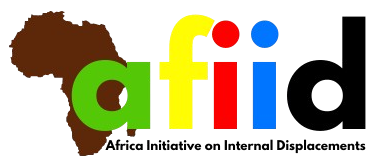Climate change is emerging as one of the most pressing challenges facing Africa, significantly contributing to community displacement across the continent. With its diverse ecosystems and vulnerable populations, Africa is particularly susceptible to the impacts of climate change, including extreme weather events, shifting agricultural patterns, and resource scarcity. This article examines the relationship between climate change and displacement in Africa, its consequences, and potential solutions.
The Climate Crisis in Africa
Vulnerability to Climate Change
Africa is home to a variety of climates, ranging from arid deserts to lush rainforests. However, many regions are already experiencing the adverse effects of climate change, including rising temperatures, prolonged droughts, and increased flooding. According to the Intergovernmental Panel on Climate Change (IPCC), “African countries will face significant challenges in managing water resources, food production, and health due to climate change” .
Key Drivers of Displacement
- Extreme Weather Events: Increased frequency and severity of droughts and floods displace communities dependent on agriculture and pastoralism. For example, in countries like Somalia and Sudan, prolonged droughts have led to crop failures and livestock deaths, forcing families to migrate in search of water and food.
- Resource Scarcity: As climate change exacerbates water scarcity and impacts agricultural productivity, competition for resources intensifies. This often leads to conflicts between communities, further driving displacement. The UN Environment Programme (UNEP) notes that “environmental degradation can exacerbate existing social tensions, leading to conflict and forced migration” .
- Urban Migration: Climate change is also driving rural-to-urban migration, as people leave their homes in search of better opportunities in cities. However, urban areas often struggle to accommodate these new arrivals, leading to the growth of informal settlements and increased vulnerability.
Consequences of Climate-Induced Displacement
Humanitarian Impacts
Communities displaced by climate change face numerous humanitarian challenges. Access to basic services, such as healthcare, education, and shelter, becomes increasingly difficult. Displaced individuals often suffer from food insecurity, malnutrition, and health issues related to poor living conditions. “Displacement due to climate change is not just a future concern; it is a current reality for millions of Africans,” states a recent report from the World Bank .
Social and Economic Disruption
The social fabric of communities is often torn apart by displacement. Families may be separated, and traditional support systems weakened. Economically, displaced individuals may lose their livelihoods, leading to a cycle of poverty that is hard to escape. The loss of agricultural productivity not only affects displaced households but can also destabilize local economies.
Environmental Consequences
Displacement can lead to further environmental degradation. As people migrate, they may overexploit new areas for resources, leading to deforestation, soil erosion, and biodiversity loss. This creates a vicious cycle where environmental degradation exacerbates the conditions that originally led to displacement.
Solutions and Strategies
Climate Adaptation and Resilience
Investing in climate adaptation strategies is crucial for reducing the vulnerability of communities to climate change. This includes promoting sustainable agricultural practices, improving water management, and enhancing disaster preparedness. Programs that focus on building resilience can help communities withstand climate impacts and reduce the need for displacement.
Policy Frameworks
Governments and international organizations must develop and implement policies that address the root causes of climate change and displacement. This includes integrating climate change considerations into development planning and ensuring that affected communities are involved in decision-making processes. The African Union’s Agenda 2063 emphasizes the importance of sustainable development and resilience against climate change.
International Support and Collaboration
Global cooperation is essential to address the challenges posed by climate change. Developed nations must fulfill their commitments to provide financial and technical support to African countries for climate adaptation and mitigation efforts. Collaborative initiatives can also facilitate knowledge sharing and capacity building.





